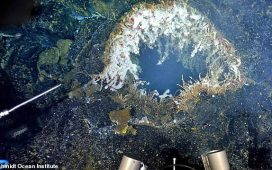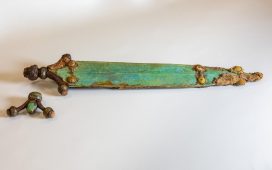The relationship between the government and scientists is under the microscope as never before. The former chief scientific adviser, Sir Patrick Vallance, gave evidence to the Covid inquiry on Monday, and Prof Chris Whitty, the chief medical officer for England, is due to take the witness stand next. Some of Sir Patrick’s views are in the public domain already, due to the release of sections of his diaries. Blunt descriptions of politicians including Boris Johnson, Rishi Sunak and Matt Hancock echo those of other recent witnesses, who described Mr Johnson as incapable of leading and confused by science, Mr Sunak (then chancellor) as overly focused on the economy at the expense of health, and Mr Hancock (who was health secretary) as dishonest.
Shocking details included the fact that the Scientific Advisory Group for Emergencies (Sage), which Sir Patrick chaired, did not hear anything about Mr Sunak’s “Eat out to help out” scheme until it was announced. On another occasion, Mr Hancock asked for evidence contained in official advice to be changed (the request was refused).
Sir Patrick’s description of the UK’s general unpreparedness for the pandemic was familiar. But it was still powerful to hear it spelled out, by a leading scientist, that policy options were restricted by public health officials’ inability to operate an effective test, trace and isolate system. The NHS’s failure to supply Sage with the data that it needed for modelling was also criticised, albeit less directly. Invited to review his own record and that of Sage in the crucial early months, Sir Patrick said it had been an error by scientists to think that they could manage the timing of the disease’s spread as they thought they could. Given the evidence that was available then, however, he does not think their mistake delayed the March 2020 lockdown by more than a few days.
Similarly, he downplayed the disagreements with Prof Whitty that were noted at the time. Rather than a clash of views, Sir Patrick argued that Prof Whitty’s caution with regard to lockdowns reflected his remit as the chief medical officer, whose job it was to have regard to public health in the round – including the impact of the increase in poverty that would be expected to follow an economic contraction.
For obvious reasons, Sir Patrick’s expertise in medicine and pharmacology makes his evidence particularly valuable. But under questioning from Andrew O’Connor KC, his account of the interface between evidence-gathering and policy-making took on significance beyond the pandemic. His exasperation at politicians’ weak grasp of key concepts such as exponential growth may be partly put down to the impatience of a scientist with non-scientists at a time of crisis. But it also raises questions about the qualifications and qualities of those who are deemed suited to the highest office.
Mr Johnson, Sir Patrick pointed out, gave up science aged 15, and until recently just 10% of recruits to the civil service fast stream came from science or maths backgrounds. Lady Hallett, the inquiry’s chair, picked up on his description of being reprimanded for speaking bluntly about the rising threat by civil servants who appeared to value process over substance. As with previous sessions, there is so much material here that one challenge for the future will be selecting what lessons to take from it. The inquiry is supplying valuable insights not only into Covid but also the operation and culture of government.










